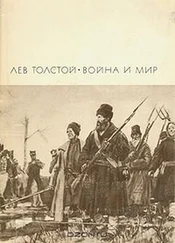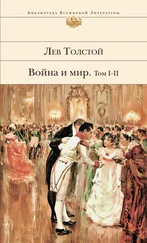| Despite his rapid journey and sleepless night, Prince Andrew when he drove up to the palace felt even more vigorous and alert than he had done the day before. |
Князь Андрей, несмотря на быструю езду и бессонную ночь, подъезжая ко дворцу, чувствовал себя еще более оживленным, чем накануне. |
| Only his eyes gleamed feverishly and his thoughts followed one another with extraordinary clearness and rapidity. |
Только глаза блестели лихорадочным блеском, и мысли изменялись с чрезвычайною быстротой и ясностью. |
| He again vividly recalled the details of the battle, no longer dim, but definite and in the concise form in which he imagined himself stating them to the Emperor Francis. |
Живо представились ему опять все подробности сражения уже не смутно, но определенно, в сжатом изложении, которое он в воображении делал императору Францу. |
| He vividly imagined the casual questions that might be put to him and the answers he would give. He expected to be at once presented to the Emperor. |
Живо представились ему случайные вопросы, которые могли быть ему сделаны,и те ответы,которые он сделает на них.Он полагал,что его сейчас же представят императору. |
| At the chief entrance to the palace, however, an official came running out to meet him, and learning that he was a special messenger led him to another entrance. |
Но у большого подъезда дворца к нему выбежал чиновник и, узнав в нем курьера, проводил его на другой подъезд. |
| "To the right from the corridor, Euer Hochgeboren! There you will find the adjutant on duty," said the official. "He will conduct you to the Minister of War." |
- Из коридора направо; там, Euer Hochgeboren, [Ваше высокородие,] найдете дежурного флигель-адъютанта, - сказал ему чиновник. - Он проводит к военному министру. |
| The adjutant on duty, meeting Prince Andrew, asked him to wait, and went in to the Minister of War. |
Дежурный флигель-адъютант, встретивший князя Андрея, попросил его подождать и пошел к военному министру. |
| Five minutes later he returned and bowing with particular courtesy ushered Prince Andrew before him along a corridor to the cabinet where the Minister of War was at work. |
Через пять минут флигель-адъютант вернулся и, особенно учтиво наклонясь и пропуская князя Андрея вперед себя, провел его через коридор в кабинет, где занимался военный министр. |
| The adjutant by his elaborate courtesy appeared to wish to ward off any attempt at familiarity on the part of the Russian messenger. |
Флигель-адъютант своею изысканною учтивостью, казалось, хотел оградить себя от попыток фамильярности русского адъютанта. |
| Prince Andrew's joyous feeling was considerably weakened as he approached the door of the minister's room. |
Радостное чувство князя Андрея значительно ослабело, когда он подходил к двери кабинета военного министра. |
| He felt offended, and without his noticing it the feeling of offense immediately turned into one of disdain which was quite uncalled for. |
Он почувствовал себя оскорбленным, и чувство оскорбления перешло в то же мгновенье незаметно для него самого в чувство презрения, ни на чем не основанного. |
| His fertile mind instantly suggested to him a point of view which gave him a right to despise the adjutant and the minister. |
Находчивый же ум в то же мгновение подсказал ему ту точку зрения, с которой он имел право презирать и адъютанта и военного министра. |
| "Away from the smell of powder, they probably think it easy to gain victories!" he thought. |
"Им, должно быть, очень легко покажется одерживать победы, не нюхая пороха!" подумал он. |
| His eyes narrowed disdainfully, he entered the room of the Minister of War with peculiarly deliberate steps. |
Глаза его презрительно прищурились; он особенно-медленно вошел в кабинет военного министра. |
| This feeling of disdain was heightened when he saw the minister seated at a large table reading some papers and making pencil notes on them, and for the first two or three minutes taking no notice of his arrival. |
Чувство это еще более усилилось, когда он увидал военного министра, сидевшего над большим столом и первые две минуты не обращавшего внимания на вошедшего. |
| A wax candle stood at each side of the minister's bent bald head with its gray temples. |
Военный министр опустил свою лысую, с седыми висками, голову между двух восковых свечей и читал, отмечая карандашом, бумаги. |
| He went on reading to the end, without raising his eyes at the opening of the door and the sound of footsteps. |
Он дочитывал, не поднимая головы, в то время как отворилась дверь и послышались шаги. |
| "Take this and deliver it," said he to his adjutant, handing him the papers and still taking no notice of the special messenger. |
- Возьмите это и передайте, - сказал военный министр своему адъютанту, подавая бумаги и не обращая еще внимания на курьера. |
| Prince Andrew felt that either the actions of Kutuzov's army interested the Minister of War less than any of the other matters he was concerned with, or he wanted to give the Russian special messenger that impression. |
Князь Андрей почувствовал, что либо из всех дел, занимавших военного министра, действия кутузовской армии менее всего могли его интересовать, либо нужно было это дать почувствовать русскому курьеру. |
| "But that is a matter of perfect indifference to me," he thought. |
"Но мне это совершенно всё равно", подумал он. |
| The minister drew the remaining papers together, arranged them evenly, and then raised his head. |
Военный министр сдвинул остальные бумаги, сровнял их края с краями и поднял голову. |
| He had an intellectual and distinctive head, but the instant he turned to Prince Andrew the firm, intelligent expression on his face changed in a way evidently deliberate and habitual to him. His face took on the stupid artificial smile (which does not even attempt to hide its artificiality) of a man who is continually receiving many petitioners one after another. |
У него была умная и характерная голова. Но в то же мгновение, как он обратился к князю Андрею, умное и твердое выражение лица военного министра, видимо, привычно и сознательно изменилось: на лице его остановилась глупая, притворная, не скрывающая своего притворства, улыбка человека, принимающего одного за другим много просителей. |
| "From General Field Marshal Kutuzov?" he asked. "I hope it is good news? |
- От генерала-фельдмаршала Кутузова? - спросил он. - Надеюсь, хорошие вести? |
| There has been an encounter with Mortier? |
Было столкновение с Мортье? |
| A victory? |
Победа? |
| It was high time!" |
Пора! |
| He took the dispatch which was addressed to him and began to read it with a mournful expression. |
Он взял депешу, которая была на его имя, и стал читать ее с грустным выражением. |
| "Oh, my God! |
- Ах, Боже мой! |
| My God! |
Боже мой! |
| Schmidt!" he exclaimed in German. "What a calamity! What a calamity!" |
Шмит! - сказал он по-немецки. - Какое несчастие, какое несчастие! |



